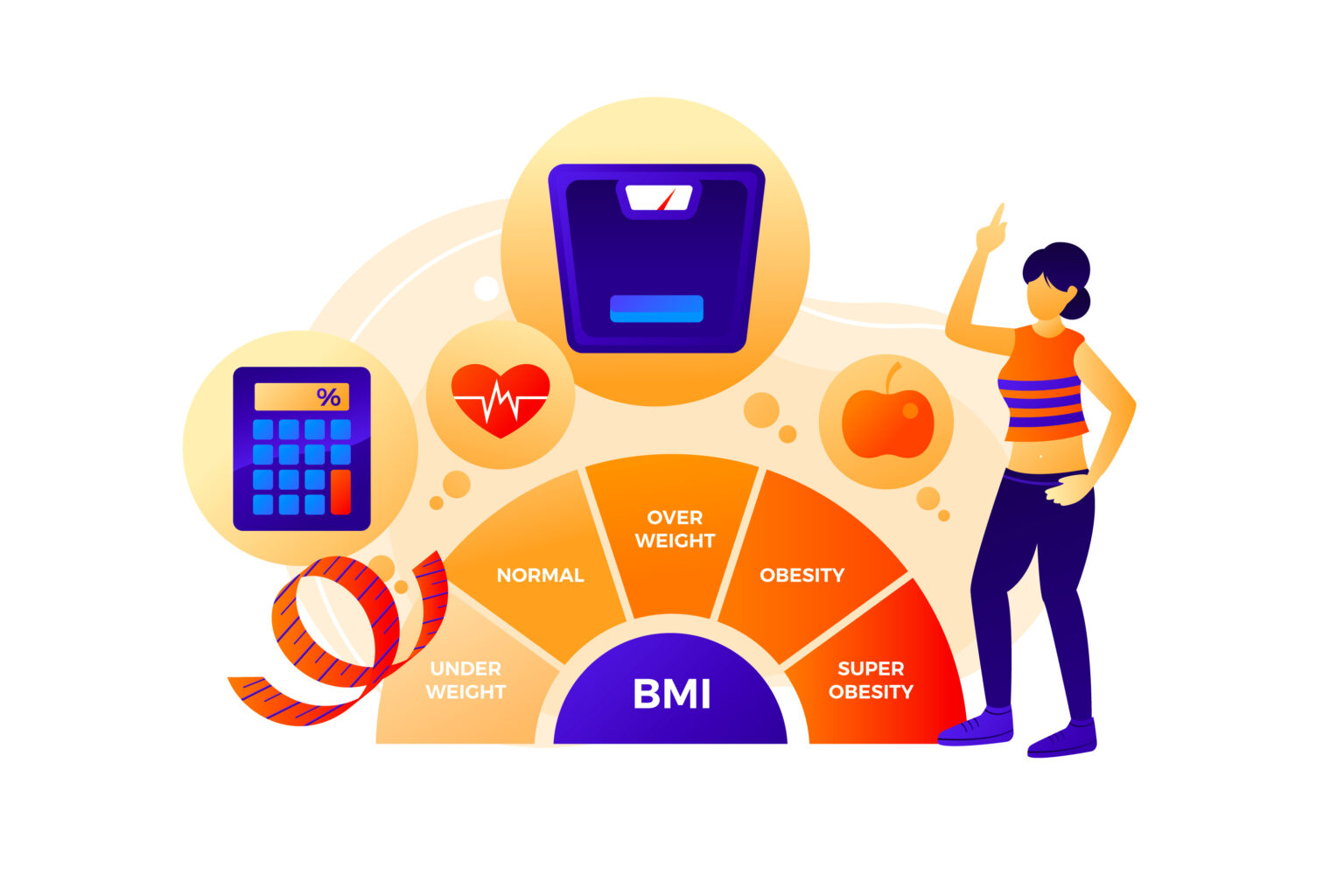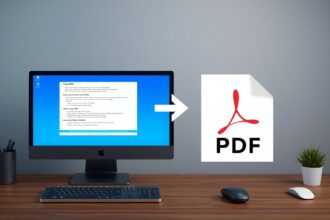Body Mass Index (BMI) has become one of the most widely used health screening tools in the UK, with the NHS providing free, accessible BMI calculators to help millions of people assess their weight status. Understanding how to properly use the BMI calculator NHS provides, interpret your results, and take appropriate action can be a crucial first step in your health and wellness journey.
What is BMI and Why Does the NHS Use It?
Body Mass Index is a numerical value derived from your height and weight that provides a general indication of whether you’re in a healthy weight range. The NHS BMI calculator uses the standard formula: BMI = weight (kg) ÷ height (m)².
The NHS has adopted BMI as a primary screening tool because it’s:
- Quick and easy to calculate
- Non-invasive and cost-effective
- Useful for population-level health assessments
- Supported by decades of research linking BMI ranges to health outcomes
However, it’s important to understand that BMI is a screening tool, not a diagnostic instrument. The NHS emphasizes that BMI should be considered alongside other factors when assessing overall health.
How to Use the NHS BMI Calculator
The NHS provides a user-friendly online BMI calculator that takes just minutes to complete. Here’s how to use it effectively:
Step-by-Step Instructions
- Visit the official NHS BMI calculator on the NHS website
- Enter your height in either feet and inches or centimeters
- Input your weight in either stones and pounds or kilograms
- Select your ethnicity (this affects the interpretation of results)
- Choose your age group and gender
- Click calculate to receive your BMI score and category
Tips for Accurate Measurements
- Weigh yourself first thing in the morning after using the bathroom
- Use a hard, flat surface for weighing
- Measure height without shoes against a wall
- Be honest with your inputs for the most accurate assessment
Understanding Your NHS BMI Results
The BMI calculator NHS categorizes results into several ranges, each with specific health implications:
Standard BMI Categories
Underweight (BMI below 18.5)
- May indicate malnutrition or underlying health conditions
- Could suggest need for weight gain under medical supervision
- Associated with increased risk of osteoporosis and immune system problems
Healthy Weight (BMI 18.5-24.9)
- Considered the optimal range for most adults
- Associated with lowest risk of weight-related health problems
- Goal range for most weight loss or weight gain programs
Overweight (BMI 25-29.9)
- Indicates excess weight that may impact health
- Increased risk of developing type 2 diabetes, heart disease, and stroke
- Often the target for lifestyle interventions
Obese Class I (BMI 30-34.9)
- Significantly increased health risks
- May qualify for NHS weight management programs
- Often requires comprehensive lifestyle changes
Obese Class II (BMI 35-39.9)
- High risk of serious health complications
- May be eligible for specialist NHS services
- Could qualify for bariatric surgery referral
Obese Class III (BMI 40+)
- Extremely high health risks
- Typically qualifies for NHS specialist obesity services
- Often eligible for surgical weight loss options
Ethnicity-Specific Considerations
The NHS BMI calculator includes ethnicity options because research shows that health risks can vary between different ethnic groups at the same BMI levels:
South Asian, Chinese, and Middle Eastern populations may have increased health risks at lower BMI levels, with some guidelines suggesting:
- Overweight: BMI 23-27.5
- Obese: BMI 27.5+
Black African and Caribbean populations may have different body composition patterns that affect BMI interpretation.

Limitations of BMI: What the NHS Doesn’t Tell You
While the BMI calculator NHS is a valuable tool, it’s important to understand its limitations:
BMI Doesn’t Distinguish Between Muscle and Fat
Athletes and bodybuilders often have high BMIs due to muscle mass, not excess fat. The NHS acknowledges this limitation but notes that it affects a relatively small percentage of the population.
Age-Related Considerations
BMI ranges were primarily developed for adults aged 20-65. Older adults may have different optimal BMI ranges, and the NHS recommends discussing results with healthcare providers for those over 65.
Individual Variation
People store fat differently, and some individuals may have health risks at lower BMIs while others remain healthy at higher BMIs. The NHS emphasizes that BMI is just one piece of the health puzzle.
Pregnancy and Special Conditions
The BMI calculator NHS isn’t appropriate for pregnant women, children under 18, or individuals with certain medical conditions that affect body composition.
Taking Action Based on Your NHS BMI Results
If Your BMI Indicates Underweight
The NHS recommends:
- Consulting with your GP to rule out underlying conditions
- Working with a dietitian to develop a healthy weight gain plan
- Focusing on nutrient-dense foods rather than empty calories
- Considering strength training to build muscle mass
If Your BMI Shows Healthy Weight
Maintain your current approach by:
- Continuing regular physical activity
- Eating a balanced diet rich in fruits, vegetables, and whole grains
- Monitoring your weight regularly
- Making gradual adjustments if your BMI starts to drift
If Your BMI Indicates Overweight or Obesity
The NHS offers several resources and programs:
NHS Weight Loss Plan
- Free 12-week online program
- Includes meal plans, exercise routines, and progress tracking
- Based on evidence-based weight loss principles
Local NHS Services
- Weight management programs vary by area
- May include group sessions, one-on-one counseling, or specialist clinics
- Some areas offer tier 3 services for complex obesity cases
Referral Pathways
- GP referrals for specialist obesity services
- Potential eligibility for bariatric surgery
- Access to NHS dietitians and exercise specialists
Beyond BMI: Complementary Health Assessments
While using the BMI calculator NHS is an excellent starting point, consider these additional assessments:
Waist Circumference
The NHS also emphasizes waist measurement as it can indicate abdominal fat, which is particularly linked to health risks:
- Men: Increased risk above 94cm (37 inches), high risk above 102cm (40 inches)
- Women: Increased risk above 80cm (31.5 inches), high risk above 88cm (35 inches)
Body Fat Percentage
Some NHS services may offer body composition analysis, which provides a more detailed picture than BMI alone.
Blood Pressure and Cholesterol
These measurements, available through NHS health checks, provide crucial context for interpreting BMI results.
Making the Most of NHS Resources
The NHS offers extensive support beyond just the BMI calculator NHS:
NHS Health Checks
Available to adults aged 40-74, these comprehensive assessments include BMI calculator NHS alongside other vital health measurements.
Digital Tools and Apps
- NHS Weight Loss Plan app
- Couch to 5K running program
- NHS Food Scanner for nutrition information
Local NHS Services
Contact your GP surgery or local NHS trust to learn about:
- Weight management programs
- Exercise referral schemes
- Dietitian services
- Mental health support related to weight management
Creating a Sustainable Health Plan
Using your BMI calculator NHS results as a starting point, develop a comprehensive approach to health:
Set Realistic Goals
- Aim for 1-2 pounds of weight loss per week if overweight
- Focus on sustainable lifestyle changes rather than quick fixes
- Celebrate small victories along the way
Combine Diet and Exercise
- Follow NHS Eatwell Guide recommendations
- Aim for 150 minutes of moderate exercise weekly
- Include both cardiovascular and strength training activities
Monitor Progress
- Use the NHS BMI calculator monthly to track changes
- Keep a food and exercise diary
- Take body measurements beyond just weight
Seek Professional Support
- Regular GP check-ups
- Consider referral to NHS weight management services
- Don’t hesitate to ask for help when needed
Common Myths About BMI and NHS Guidelines
Myth: BMI is Perfect for Everyone
The NHS clearly states that BMI is a screening tool with limitations. Individual assessment by healthcare professionals is always recommended for comprehensive health evaluation.
Myth: You Must Be in the “Healthy” BMI Range to Be Healthy
While the healthy BMI range is associated with lower health risks, some individuals may be healthy at slightly higher BMIs, especially if they’re physically fit with good cardiovascular health markers.

Myth: BMI Changes Should Happen Quickly
The NHS emphasizes sustainable, gradual changes. Rapid BMI changes can be unhealthy and are often not maintainable long-term.
When to Seek Professional Help
While the NHS BMI calculator is an excellent self-assessment tool, certain situations warrant professional medical attention:
- BMI consistently in the underweight range
- BMI in the obese categories (30+)
- Rapid, unexplained BMI changes
- BMI concerns alongside other health symptoms
- Difficulty achieving or maintaining a healthy BMI despite lifestyle changes
The Future of BMI and NHS Health Assessment
The NHS continues to evolve its approach to health assessment, recognizing both the value and limitations of BMI. Future developments may include:
- Integration of additional body composition measurements
- Personalized BMI ranges based on genetic and ethnic factors
- Enhanced digital tools for comprehensive health tracking
- Improved access to specialist obesity services
Conclusion: Your BMI Calculator NHS Journey
The BMI calculator NHSr serves as an invaluable first step in understanding your weight status and potential health risks. However, it’s most effective when used as part of a comprehensive approach to health that includes regular medical check-ups, sustainable lifestyle changes, and professional support when needed.
Remember that your BMI is just one number in your overall health picture. The NHS provides extensive resources and support to help you achieve and maintain optimal health, regardless of your starting point. Whether your BMI calculator results indicate a need for weight loss, weight gain, or maintenance, the key is taking consistent, sustainable action supported by evidence-based NHS guidance.
Use your BMI calculator NHS results as motivation for positive change, but don’t let a single number define your worth or determine your entire approach to health. With the right combination of self-awareness, professional support, and commitment to sustainable lifestyle changes, you can work toward optimal health and well-being at any BMI starting point.
Take advantage of the comprehensive resources the NHS provides, from the simple BMI calculator NHS to specialized weight management programs, and remember that your healthcare team is there to support you every step of the way on your health journey.

















